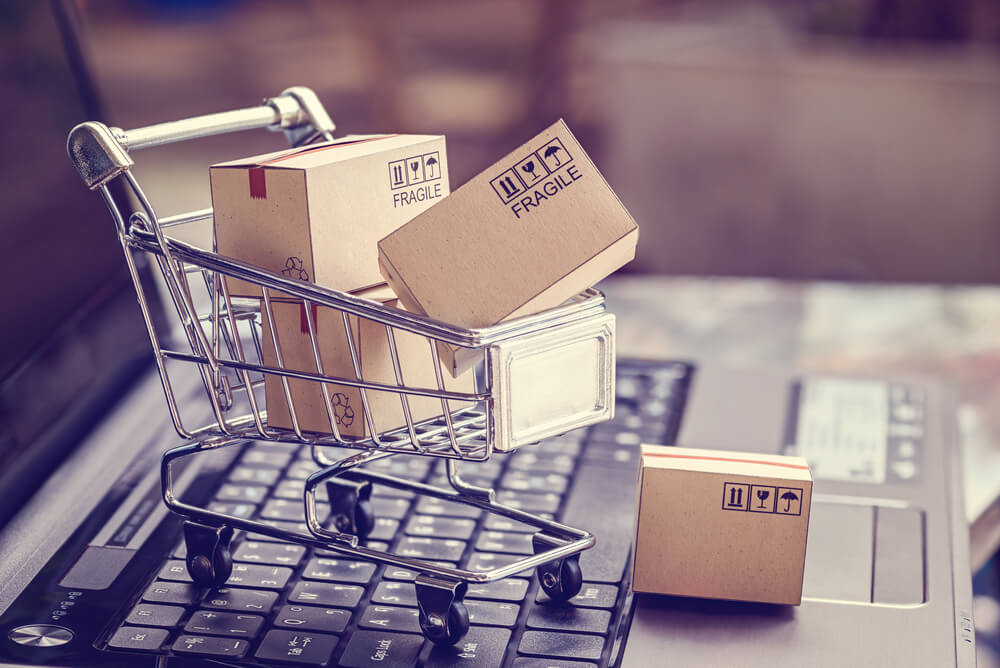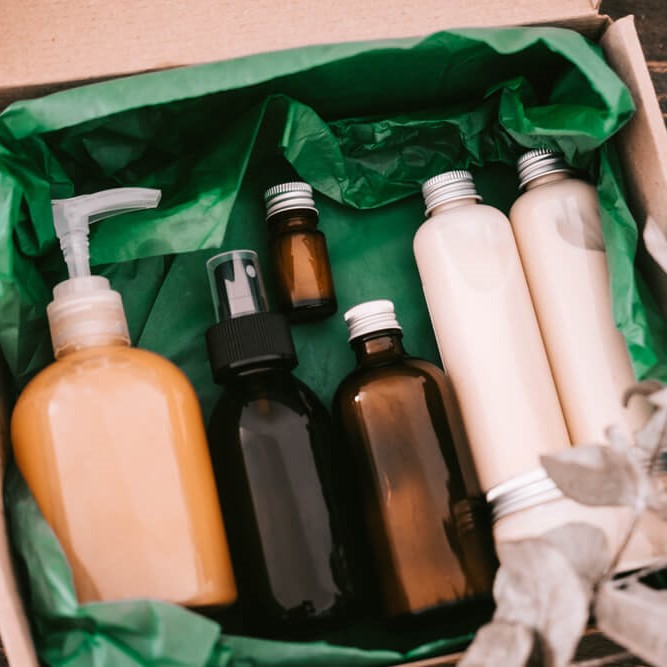There’s so much involved when it comes to creating private label products. Research and development, approving samples, designing packaging, mass production…it can often feel like a milestone once you’ve finally made it through the process and actually have your finished products in your hands.
However, what happens next? Now that you’re ready to start getting your products out onto the market, how should you go about making this happen?
Read on as FLPL shares some top tips!
Set Up an E-Commerce Store
E-commerce stores have become more popular than ever, with the USA alone boasting more than 14 million of them. Chances are that most of your favorite brands have their own e-commerce stores, with this being the fastest way to get your brands to market.
An e-commerce store offers a number of other benefits too. For starters, it’s extremely cost-effective. You won’t need to pay any major overheads and you won’t need to deal with the stress of finding, setting up, and running a physical store.
With an e-commerce store, you’ll also have access to a much wider audience. So long as you’re able to organize shipping, you could potentially sell your private label products to customers all over the world. This is why, when we create private label products for FLPL clients, we advise on how to adhere to international regulations so that our clients aren’t limited in terms of where they can sell their products.
Of course, there are downsides to selling through an e-commerce store too. For starters, there’s so much competition out there. Certain niches, such as skincare, are very crowded. This makes it much harder for a new brand to stand out. However, it can still be done, especially if you find an untapped micro-niche.
You’ll also have to deal with potential security threats and other IT issues when selling via an e-commerce store. Unless you have experience in this area, it can be difficult to navigate. This is why many of our clients take advantage of the additional services offered by the FLPL team, one of which involves setting up and running e-commerce stores! From payment processing to fulfillment logistics, we’ll take care of it all.
Consider Selling on Online Marketplaces
If you like the idea of selling online but don’t want to set up your own e-commerce store, online marketplaces offer an alternative. Websites like Amazon and eBay provide brands with a way to reach a large and established audience, many of whom will likely be very receptive to your private label products.
The fact that your brand is associated with an online marketplace will also help to give it some credibility. This can be important for new brands. An e-commerce store on its own may not be enough to establish trust. This is why many new brands often choose to use online marketplaces in addition to having their own e-commerce stores. The fact that most online marketplaces make reviews easy to access is something else that will persuade customers to try a new product…assuming that those reviews are positive!
The biggest downside to selling on an online marketplace is the fees that you’ll have to pay. They’ll usually charge a commission on every sale, with the percentages varying between marketplaces. For new, small brands, this can sometimes really eat into profits.
Another reason why it’s best to avoid depending solely on online marketplaces is the restrictions that you’ll have to deal with in terms of branding and how you’re able to communicate with customers. This can be limiting and could end up costing you sales.
Sell on Social Media

For many new brands, selling their private label products on social media might seem like a no-brainer. After all, there’s a good chance that you’re already using social media for marketing purposes, so surely adding in an e-commerce channel makes sense?
In many ways, yes. It’s a free and easy way to set up an e-commerce store. If you already have an e-commerce site, you can link the two, making the process even simpler.
Social media also gives you a direct line of communication with your customers. Whether they have a question about a skin cream you’ve just launched or they want to track an order that they’ve placed, many people prefer to communicate via social media, and this becomes much easier if they’ve purchased a product through your social media store.
However, again, there’ll be a price to pay for those benefits. You’ll be charged a commission for each sale that you make. This could end up limiting your company’s growth, especially at the beginning.
Just like with other online marketplaces, you’ll also have a number of rules to follow. For example, sell your private label products on Facebook and you’ll have to adhere to specific shipping requirements. For some, this may not be a problem, but for others, it could be disruptive to what could have been a smoother process.
If a customer happens to have a negative experience after purchasing a product through your social media store, there’s a good chance that they’ll say something about it…publicly. It’s all too easy to leave negative feedback on social media, even if the issue may not have been your fault. This could quickly tarnish your reputation, leaving you to deal with damage control.
Establish a Brick-and-Mortar Store
So far, we’ve only discussed ways of selling your private label products online. However, there’s a whole offline world to consider too. A traditional brick-and-mortar store, meaning a physical store in which you sell directly to customers, can offer a number of advantages.
Sure, many traditional stores have been struggling to compete with the digital sphere lately. Physical stores aren’t the best move for every business. However, in many markets, customers prefer being able to browse and shop in person. It gives them the opportunity to see the product in their own hands, and maybe even test it out. This is particularly important when it comes to beauty products. It’s a much more personal experience – something that online stores are always trying to strive for.
Plus, if you find a good location, then this can often speak for itself too. It could enhance your brand image in a big way, giving you prestige or street cred, depending on the vibe you’re going for. It will make your business seem more legitimate, compared to an e-commerce store that anyone could have set up.
The biggest downside to a brick-and-mortar store is the cost involved. From startup costs to operational costs, it involves a lot more risk. It may also limit you to a certain geographic area. To get around this, you would need to run an e-commerce store alongside your physical store. Again, this can be beneficial, but it also means double the work for you.
Look Into Retail Partnerships

Don’t have the funds to set up a physical store for your private label products? Another way to get your goods into the hands of potential customers is by partnering with established retailers. Bag yourself a contract with a national chain and you could find your products being sold all over the country, or even around the world. Not only will your products have space on their physical shelves, but they’ll be able to sell your products via their own e-commerce stores too.
Because of this, companies who sell their private label products through an established retailer notice a high volume of sales. Large retailers tend to place large orders. Again, this is great for you. Not only will the revenue be flying in but your production costs may also drop since a larger order usually means a lower cost per unit.
Of course, this is all offset by the lower profit margins that you’ll experience. An established retailer will try to get the best price possible. Even with the high sales volume and the lower production costs, you could still end up making a loss if you don’t get your numbers correct.
Another factor to consider is how you’ll have no control over the shopping experience. This could influence a customer’s perception of your brand. Say, for example, you’re selling luxury hair care products. If these are sitting on the bottom of a shelf, underneath rows of budget products, it’s not going to portray a high-end brand image. It’s a risk that can sometimes be worth taking, but at other times could cause regret.
Run a Pop-Up Store
There’s one more option to consider if you want to sell your private label products physically; a pop-up store. This is essentially like having your own brick-and-mortar store, yet without the permanence. With a pop-up store only running for a certain amount of time, the risk, commitment, and finances involved are significantly lower.
With a pop-up store, you’ll be able to offer your customers a memorable experience. You won’t have to worry about sustaining the experience for the foreseeable future since your store will only be running for a short while. As a result, you can go a little overboard, adding elements to engage all five senses to really capture the attention of your target market.
Not only is this a great way to sell your products, offering the same benefits as a brick-and-mortar store, but it’s also a fantastic marketing opportunity. Pick the right location and you’ll have a powerful advertising tool at your disposal.
With that said, finding the right location can be tricky, not to mention expensive. You need a spot that’s going to showcase your brand image in the best light possible. The upfront cost that this involves may make this a difficult option for new businesses. However, get creative and you never know what you may think of!
Selling Your Private Label Products With FLPL
While many private label manufacturers will produce your products and then leave it at that, we go the extra mile at FLPL. If you need any advice or assistance when it comes to selling your private label products, our experienced team can offer all of that and more.



